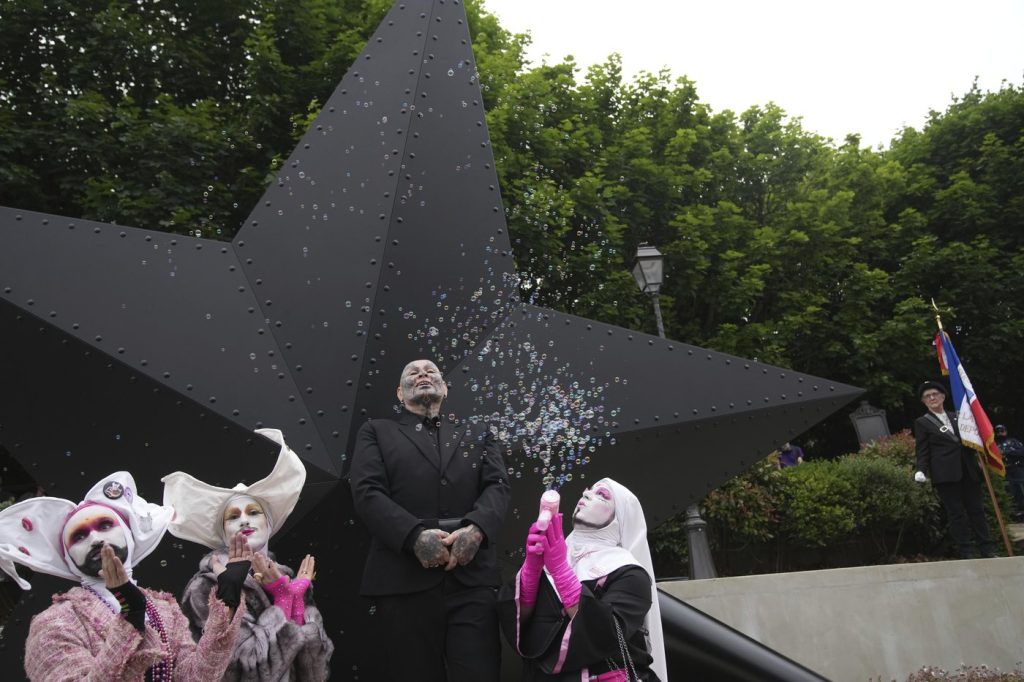A memorial dedicated to the often-overlooked gay victims of the Nazi regime, as well as all LGBTQ+ individuals persecuted throughout history, was unveiled in Paris on Saturday. This significant monument, a massive steel star designed by the French artist Jean-Luc Verna, is situated in a public garden close to Bastille Plaza in the heart of Paris. Paris Mayor Anne Hidalgo emphasized the monument's purpose, stating that it serves to fulfill a duty of remembrance and to combat ongoing discrimination.
Hidalgo remarked, “Historical recognition means saying ‘this happened’ and ‘we don’t want it to happen again.’” Verna, who is not only a visual artist but also an LGBTQ+ rights activist, provided insight into the design of the sculpture, which resembles a large star lying on the ground. Verna explained, “There’s a black side in front of us, forcing us to remember… At certain times of the day, it casts a long shadow on the ground, evoking the dangers looming over, sadly.” Conversely, the silvery side of the star reflects the sky, symbolizing “the color of time passing, with the Paris sky moving as quickly as public opinion, which can change at any moment,” Verna added.
Historians estimate that between 5,000 and 15,000 individuals were deported throughout Europe by the Nazi regime during World War II simply because they were gay. This memorial seeks to highlight and acknowledge these historical injustices. In 2005, Jacques Chirac became the first French president to officially recognize these crimes, stating that LGBTQ+ people were “hunted down, arrested and deported.”
Jean-Luc Roméro, the deputy mayor of Paris and a longtime advocate for LGBTQ+ rights, noted that the unveiling of the monument coincides with troubling times, particularly concerning threats to LGBTQ+ rights. He tragically remarked, “We didn’t know, unfortunately, that this monument would be inaugurated at one of the worst moments we’re going through right now.” In his comments, he referenced policies enacted during former U.S. President Donald Trump’s administration, expressing concern over significant setbacks for LGBTQ+ rights, particularly for transgender individuals.
Since returning to the White House in January, Trump has implemented measures that restrict the recognition of individuals as either male or female and has taken steps to exclude transgender girls and women from women’s sports competitions. Additionally, these policies have led to the ousting of transgender military personnel and limitations on federal funding for gender-affirming care for transgender individuals under the age of 19. Legal challenges have emerged in response to these efforts.
Across Europe, LGBTQ+ rights are also facing challenges. For instance, this year, Hungary's parliament passed a constitutional amendment that allows the government to ban public events organized by LGBTQ+ communities. Critics, including legal scholars, have denounced this decision as yet another step towards authoritarianism by the country's populist government.
The monument in Paris serves as a powerful reminder of the past and a call to action against ongoing discrimination faced by the LGBTQ+ community globally. In honoring the lives of those lost to persecution, it encapsulates the importance of remembrance and advocacy for equal rights for all individuals, irrespective of their sexual orientation or gender identity.












